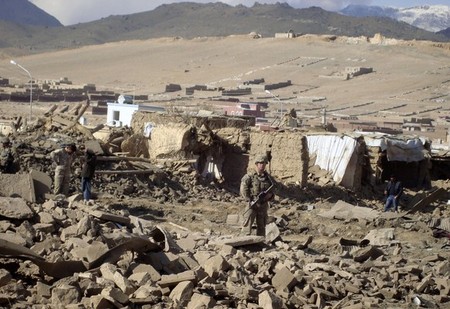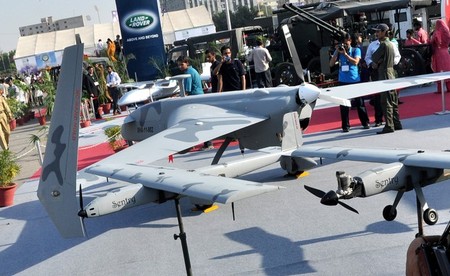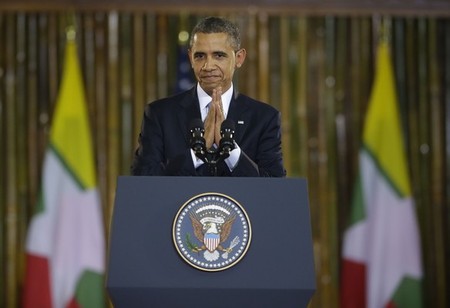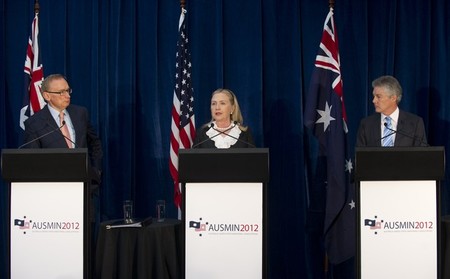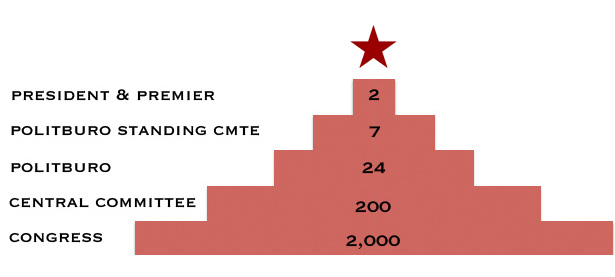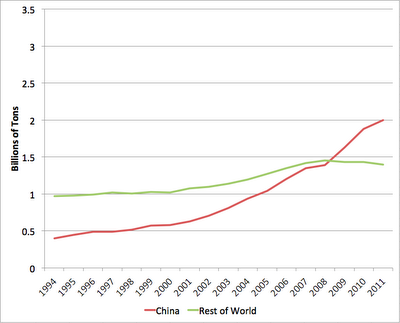
Walter Russell Mead (via Sullivan) argues that Americans don't understand or support the concept of proportionality in war and would not blink if Israel decided to raze Gaza:
For many people around the world, this seems patently obvious: Israel has a right to respond to attacks from Hamas but it doesn’t have an unlimited right to respond to limited attacks with unlimited force. Israeli blindness to this obvious moral principle strikes many observers as evidence of hardheartedness and national moral decline, and colors their perceptions of many other Israeli policies.
The whole jus in bello argument sails right over the heads of most Americans....From this perspective, the kind of tit-for-tat limited warfare that the advocates of just and proportionate warfare would require is a recipe for unending war: for decades of random air strikes, bombs and other raids. An endless war of limited intensity is worse, many Americans instinctively feel, than a time-limited war of unlimited ferocity. A crushing blow that brings an end to the war—like General Sherman’s march of destruction through the Confederacy in 1864-65—is ultimately kinder even to the vanquished than an endless state of desultory war.
This may be true, but it also explains why very few American wars end in victory: Korea ended in a stalemate, Vietnam in a loss and the wars in Iraq and Afghanistan with far-from-satisfactory outcomes. The view that a war represents an opportunity to forge a "clean break" with the dynamics that initiated the conflict is obviously alluring, but not always true. Many wars, in fact, end with murky, less-than-definitive outcomes. Even "victories" can prove ephemeral, as the victors of World War I soon discovered. There are wars that do end decisively: the American Revolution booted out the British, the Civil War vanquished the South and World War II ended in the collapse of the Nazi and Imperial Japanese regimes. But none of these are really analogous to the kind of conflict that Israel is in with Hamas in Gaza.
Israel understands this, which is why they are fighting in the manner that Mead finds so mystifying. They cannot land a knock-out blow because there is no such thing. If such an option were available to them, wouldn't they have seized it by now?
Moreover, I wonder whether Mead is right that Americans would be indifferent to -- or even encouraged by -- a "time-limited war of unlimited ferocity" against Gaza. Since Mead evokes World War II as the template, let's consider what that would entail: at a minimum it would mean the destruction of most of Gaza's civilian infrastructure and the deaths of tens of thousands, potentially hundreds of thousands, of civilians. It would take a year's worth of awful images from Syria's civil war and compress them (and magnify them) over the space of several weeks. In a fairly short period of time, Hamas would lose its ability to fight back at all and the "war" would become even more one-sided than it already is. At a certain point, unrestrained military action against a civilian population that has no capacity to fight back ceases to be a "war" and becomes something much worse.
Covering this war of "unlimited ferocity" would certainly be difficult -- it would be too dangerous for most reporters since the bombardment would be so widespread -- but the news would leak out and Americans would ultimately understand what was occurring. Moreover, there would be explosive and widespread condemnation not just internationally but also from Washington. The Obama administration would almost certainly not publicly support an Israel campaign to raze Gaza to the ground and kills tens of thousands of Gazans.
Moreover, the most recent public opinion poll shows 57 percent of Americans supporting Israel's current response. It is impossible for me to believe that this number would not decrease if Israel began flattening hospitals and homes in the widespread and coordinated fashion described above.
None of this, I should stress, is going to happen -- this conflict will likely grind down like the last time Israel and Hamas came to blows. This may, as Mead says, strike most Americans as "unsatisfactory," but it's difficult to see a viable alternative.
(AP Photo)


